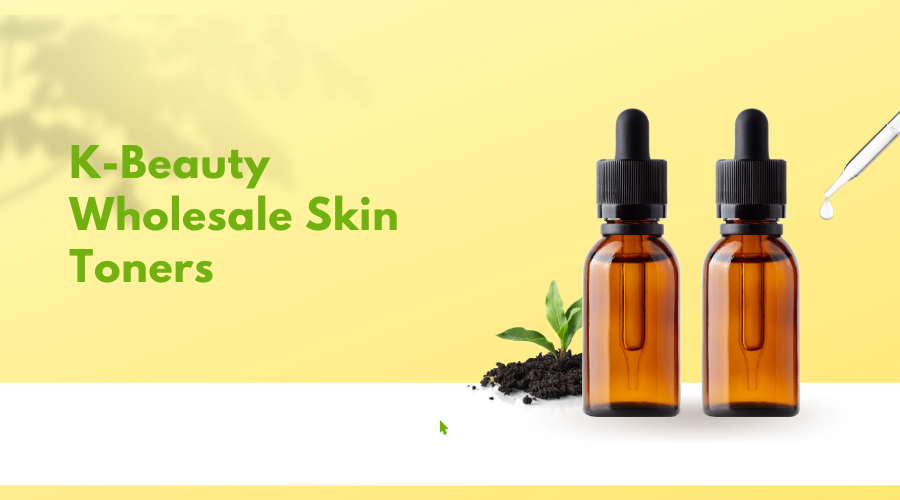The Complete Guide to Working with a Manufacturer of Skin Toner
- healthybeautykr
- May 20
- 4 min read

In the fast-paced world of skincare, creating your own product line can be both exciting and overwhelming. Whether you're an established beauty brand or an entrepreneur just starting out, one of the most critical decisions you'll make is choosing the right manufacturer. This guide will walk you through the entire process—from idea to final product—so you can bring your skincare vision to life confidently.
1. Why Skin Toners Are a Must-Have in Skincare
Before we dive into the manufacturing process, let’s take a moment to understand why skin toners are such a hot commodity.
Toners help balance the skin's pH, remove residual impurities, and prep the skin for better absorption of serums and moisturizers. In today’s skincare market, consumers are becoming more educated and ingredient-savvy, which is why the demand for high-quality, effective toners is rising fast.
2. Defining Your Vision: What Kind of Toner Do You Want to Make?
Every great skincare product starts with a clear concept. Ask yourself:
Who is your target audience?
Is your toner meant to be hydrating, exfoliating, anti-aging, or acne-fighting?
Should it be organic, vegan, or dermatologist-tested?
Clarifying your brand identity and product goals early will make the manufacturing process smoother and more efficient.
3. Choosing the Right Type of Manufacturer: OEM vs. ODM
When searching for a toner manufacturer, you'll come across two common terms: OEM (Original Equipment Manufacturer) and ODM (Original Design Manufacturer).
OEM: You provide the formula, packaging design, and specifications. The manufacturer produces your toner accordingly.
ODM: The manufacturer offers a ready-made formula and even packaging designs you can rebrand as your own.
Pro tip: If you’re new to skincare, ODM might be the faster route. For brands with a unique formula in mind, OEM is the way to go.
4. Finding a Trusted Skin Toner Manufacturer
Not all manufacturers are created equal. When evaluating potential partners, look for:
Certifications (GMP, ISO, FDA-approved, etc.)
Years of experience in skincare manufacturing
Transparency about sourcing and ingredients
Ability to scale with your business
Don’t settle for the first option you find—request product samples, tour facilities (virtually or in person), and read client testimonials.
5. Ingredient Selection: The Backbone of a Great Toner
Your toner is only as good as its ingredients. Work with your manufacturer to choose active ingredients that align with your goals.
Popular toner ingredients include:
Hyaluronic acid for hydration
Niacinamide for brightening
Which hazel for oil control
Salicylic acid for acne treatment
Aloe vera for soothing
Discuss ingredient safety, source quality, and shelf life with your manufacturer to avoid surprises later.
6. Custom Formulation & Testing Phase
Once you’ve selected your ingredients, it’s time to develop your formula. Most professional manufacturers will help you create a custom blend, and they’ll usually send you a sample batch to test.
Things to look for during testing:
Texture and consistency
Absorption rate
Scent and color
Skin compatibility
Testing also includes stability tests, microbiological tests, and safety evaluations to make sure your toner is both effective and safe.
7. Designing Packaging That Sells
Packaging is more than just aesthetics—it communicates your brand’s identity and ensures the product stays fresh and protected.
Talk to your manufacturer about:
Bottle type (glass, PET, recyclable options)
Label printing (UV, embossing, matte finish, etc.)
Cap styles (spray, pump, twist-off)
Eco-conscious packaging is a big win with modern consumers, so consider sustainable options if possible.
8. Compliance and Certification
Make sure your product complies with the regulations in your target market. For example:
FDA compliance for the U.S.
EU Cosmetic Regulation for Europe
Halal or vegan certification, if applicable
A professional skin toner manufacturer will guide you through these steps, but you’re responsible for knowing where and how your product will be sold.
9. Minimum Order Quantities (MOQs) and Pricing
Every manufacturer has MOQ requirements, which are the minimum number of units you must order. This number can vary based on:
The complexity of your formula
Custom packaging
Ingredient costs
Make sure to discuss production timelines and price per unit, including packaging and labeling. Understanding your total cost of production will help you price your product competitively.
10. Production and Quality Control
After the final approval of your formula and packaging, the manufacturer begins mass production. During this time, you should expect:
Regular updates
Quality control checks at every stage
Photos or video documentation (especially for overseas production)
You want to ensure every bottle is uniform, effective, and free from defects before it hits the market.
11. Shipping and Logistics
Once your toner is ready, you must handle shipping and storage. Depending on your location and target markets, you may need:
Freight forwarding services
Customs documentation
Storage solutions or fulfillment centers
If your manufacturer offers logistics support, it can significantly simplify your backend operations.
12. Launching Your Product
Now that your skin toner is ready, it’s time to launch with confidence. Create a marketing plan that includes:
Brand story and positioning
Educational content (how to use the toner, benefits, etc.)
Before-and-after photos
Social proof and influencer reviews
Remember, a successful skincare product is more than the formula—it’s about the experience and trust you create around it.
Conclusion:
Working with the right supplier manufacturer is a journey that combines science, creativity, and strategic thinking. When done right, it can lead to a product that not only performs exceptionally but also builds a loyal customer base. From defining your concept to shipping the final product, every step requires careful planning, communication, and commitment.
So take your time, choose the right partner, and bring your skincare vision to life with confidence. Because in today’s crowded beauty market, quality and authenticity always win.



Comments